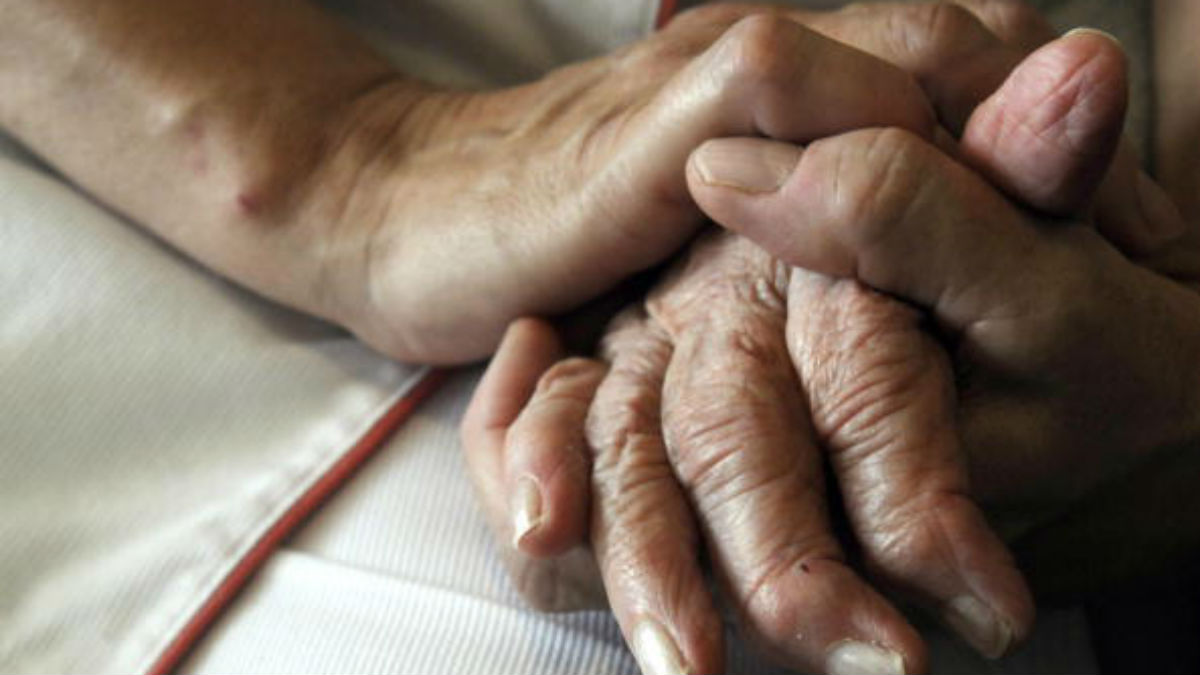Arthritis: what’s the weather got to do with it?
New study finds that damp and windy days are worse for joint pain sufferers

A free daily email with the biggest news stories of the day – and the best features from TheWeek.com
You are now subscribed
Your newsletter sign-up was successful
Scientists have discovered an unusual link between the severity of arthritis-related pain and weather.
For years, health experts have suspected that weather may play a key role in the severity of arthritic symptoms.
The BBC says that “hearing someone say their knee is playing up because of the weather is pretty common - usually because of the cold”, adding that “some say they can even predict the weather based on how their joints feel”. However, there has been no scientific consensus on the subject.
The Week
Escape your echo chamber. Get the facts behind the news, plus analysis from multiple perspectives.

Sign up for The Week's Free Newsletters
From our morning news briefing to a weekly Good News Newsletter, get the best of The Week delivered directly to your inbox.
From our morning news briefing to a weekly Good News Newsletter, get the best of The Week delivered directly to your inbox.
But this week, the University of Manchester published a study of around 2,500 people suffering from arthritis in all 124 postcode areas of the UK, which “asked them to record their levels of distress on a daily basis using their smartphone”, The Telegraph says.
To their surprise, the researchers found that sufferers were 20% more likely to be in pain on days that were humid and windy with low atmospheric pressure than they were on days with average weather.
–––––––––––––––––––––––––––––––For a round-up of the most important stories from around the world - and a concise, refreshing and balanced take on the week’s news agenda - try The Week magazine. Get your first six issues for £6–––––––––––––––––––––––––––––––
The BBC reports that “if someone’s chances of a painful day with average weather were five in 100, they would increase to six in 100 on a damp and windy day”.
A free daily email with the biggest news stories of the day – and the best features from TheWeek.com
However, the researchers were also keen to stress that they found no link between temperature and pain, or rain and pain, but that a mixture of factors such as wind, humidity and low atmospheric pressure did have an effect.
The study, called Cloudy with a Chance of Pain, was funded by the charity Versus Arthritis and ran from January 2016 to April 2017. There were more than five million pieces of data submitted.
Professor Will Dixon, who led the study, said that weather “has been thought to affect symptoms in patients with arthritis since Hippocrates” and added that “around three quarters of people living with arthritis believe their pain is affected by the weather”.
“The analysis showed that on damp and windy days with low pressure the chances of experiencing more pain, compared to an average day, was around 20%.”
He also suggested that the findings might “allow people who suffer from chronic pain to plan their activities, completing harder tasks on days predicted to have lower levels of pain”.
Dr Stephen Simpson, director of research at Versus Arthritis, said: “We know that of the 10 million people in the UK with arthritis, over half experience life-altering pain every day.
“Supporting effective ways of self-managing pain can make all the difference for people with arthritis, helping them to get and stay in work, to be full members of the community and simply to belong.
“This research will help us understand the bigger picture of the complexity of pain caused by arthritis and how people with the condition can take control of it.”
-
 5 cinematic cartoons about Bezos betting big on 'Melania'
5 cinematic cartoons about Bezos betting big on 'Melania'Cartoons Artists take on a girlboss, a fetching newspaper, and more
-
 The fall of the generals: China’s military purge
The fall of the generals: China’s military purgeIn the Spotlight Xi Jinping’s extraordinary removal of senior general proves that no-one is safe from anti-corruption drive that has investigated millions
-
 Why the Gorton and Denton by-election is a ‘Frankenstein’s monster’
Why the Gorton and Denton by-election is a ‘Frankenstein’s monster’Talking Point Reform and the Greens have the Labour seat in their sights, but the constituency’s complex demographics make messaging tricky